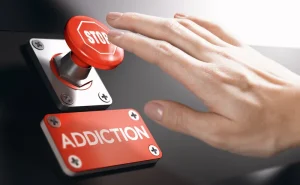
Therapy, counseling, and support groups are all great resources to help you on your path to recovery, offering essential tools and resources needed to maintain sobriety. By understanding the impact of social pressure on relapse and proactively creating a supportive network, you can ensure success in recovery. A therapist can help https://ecosoberhouse.com/ you identify and cope with your PTSD triggers in a safe and supportive setting. External triggers are situations or objects in your environment, while internal triggers emerge from inside of your own body. Life goes on, and you will eventually find yourself in the presence of an external trigger, plus you have internal triggers.
Types of PTSD Triggers
When feeling bored, individuals may be more likely to seek out activities or substances that provide temporary relief or excitement, leading to a return to addictive behaviors. Developing healthy coping internal vs external triggers mechanisms is the key to effectively managing stress and anxiety. Mindfulness, exercise, and talking to a therapist or support group are all great ways to help manage stress in a healthy way.
Strategies to Ground Yourself After Getting Triggered

Recognizing and addressing these common relapse triggers allows for proactive management, thus reducing the likelihood of reverting to substance use. Although it is important to increase your awareness of your triggers, doing so can cause some distress. Some people might become triggered by trying to identify their triggers. Therefore, before you take steps to identify your triggers, ensure you have a safety plan in place in case you experience some distress. The more strategies you have available to you, the better off you will be in managing your triggers.

Major Life Changes
If you have not been formally diagnosed with an anxiety disorder, a healthcare provider can assess your symptoms and determine the best treatment options for your particular situation. It is important for clinicians to be aware of the complexities of substance use disorders (SUDs) and recovery, so that they can provide optimal support for the patients progress and maintenance of recovery. The steps are about understanding yourself, making positive changes, and learning to help others. The 12th step can be applied by helping an addict who has relapsed to return to recovery. One common trigger source that is particularly effective at causing distress and drug cravings is smells.
- By understanding the impact of social pressure on relapse and proactively creating a supportive network, you can ensure success in recovery.
- Overconfidence in recovery can be dangerous, as it can lead to a false sense of security, making you more likely to take risks and eventually relapse.
Physical Pain
These triggers can vary from person to person, but some common examples include stress, boredom, loneliness, and feeling overwhelmed. Other triggers may include seeing people who use drugs, being in certain places, or even certain smells or sounds. For those struggling with substance abuse and addiction, it isn’t uncommon for the affected person to return to alcohol or drug use. About 40-60% of those struggling with addiction relapse following treatment. For people with past substance use disorder, triggers can be any internal or external stimulus that intensely and often uncontrollably reminds them of using drugs or alcohol. Individuals develop new thoughts, feelings and behaviors while using substances.
Overconfidence in Recovery
- Keeping secrets about thoughts and plans to get high again, as they say, will eventually lead to relapse.
- A person can find alternative routes to avoid high-risk places, such as places where they used to meet their dealers or bars where they used to binge drink.
- In addition to self-awareness and support, seeking professional help, like therapy or counseling from experts at Lantana, can also be beneficial in managing triggers and maintaining sobriety.
- Everyone will have different internal triggers, but by recognizing some of the common ones you will be better equipped to avoid or address your internal triggers.
- It not only reminds you to appreciate the good in others but also helps inspire future positive experiences.
- Triggers are social, environmental or emotional situations that remind people in recovery of their past drug or alcohol use.
In many cases, users cave to drug use during a window of opportunity and falsely believe it will cause no harm. Mental relapse, or relapse justification, is the continuous fight between wanting to use and knowing you should not use. Individuals often underestimate the dangers of situations and fall into the trap of single-time use. They give themselves permission to use substances in a controlled way, but the frequency of use generally increases until they fully relapse. Patients in rehab may consider skipping treatment sessions or support group meetings to spend time with their friends and family. A break in the routine may leave periods of isolation where patients may be inclined to use substances.

Recognizing Relapse Triggers to Avoid Risky Situations
Therapists and counselors can provide tools and strategies tailored to each individual’s unique circumstances and triggers. In addition, support groups can offer a safe space to share experiences and learn from others who are dealing with similar challenges. Drugs and alcohol are often used to self-medicate mental illness and mask negative emotions.
Stress Increases Vulnerability to Triggers and Relapse
Long-term drug use creates an association in the brain between daily routines and drug experiences. Individuals may suffer from uncontrollable drug or alcohol cravings when exposed to certain cues. The cravings act as a reflex to external or internal triggers, and this response can even affect individuals who have abstained from drugs or alcohol for a long time. We publish material that is researched, cited, edited and reviewed by licensed medical professionals.
In the context of mental health conditions, internal triggers are the cognitive and emotional cues that lead to a relapse of symptoms. For example, negative thoughts and feelings might trigger a relapse of drug or alcohol use. If a lapse or relapse occurs, the patient should be encouraged and guided by the clinician to explore the relapse itself and the circumstances surrounding it, including any early warning signs of relapse. This knowledge can then be used as a learning experience toward improved understanding and skills for relapse prevention in the future. Increasing attendance at mutual self-help group (e.g., Alcoholics or Narcotics Anonymous) meetings and boosting other personal support can exert additional positive effects. One-on-one mental health treatment can provide new tools to learn how to live with internal triggers.

Top 10 Common Relapse Triggers
Maintaining relationships with people who are still in the midst of active addiction, or who abuse substances regularly can be triggering and harmful to a person’s recovery. Setting boundaries with these people can help remove the possibility of being triggered or pressured to use drugs or drink again. The person in recovery will also need to set boundaries for themselves, for places they will not go to or events they won’t attend.
